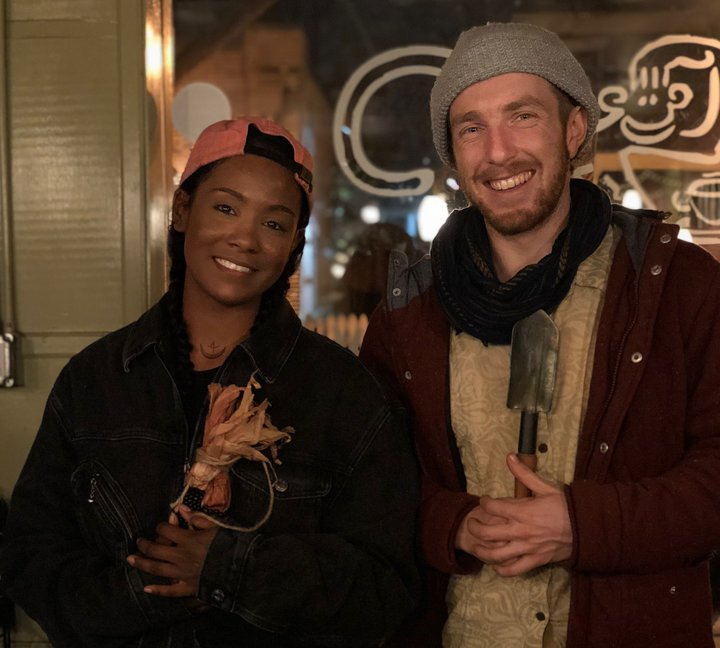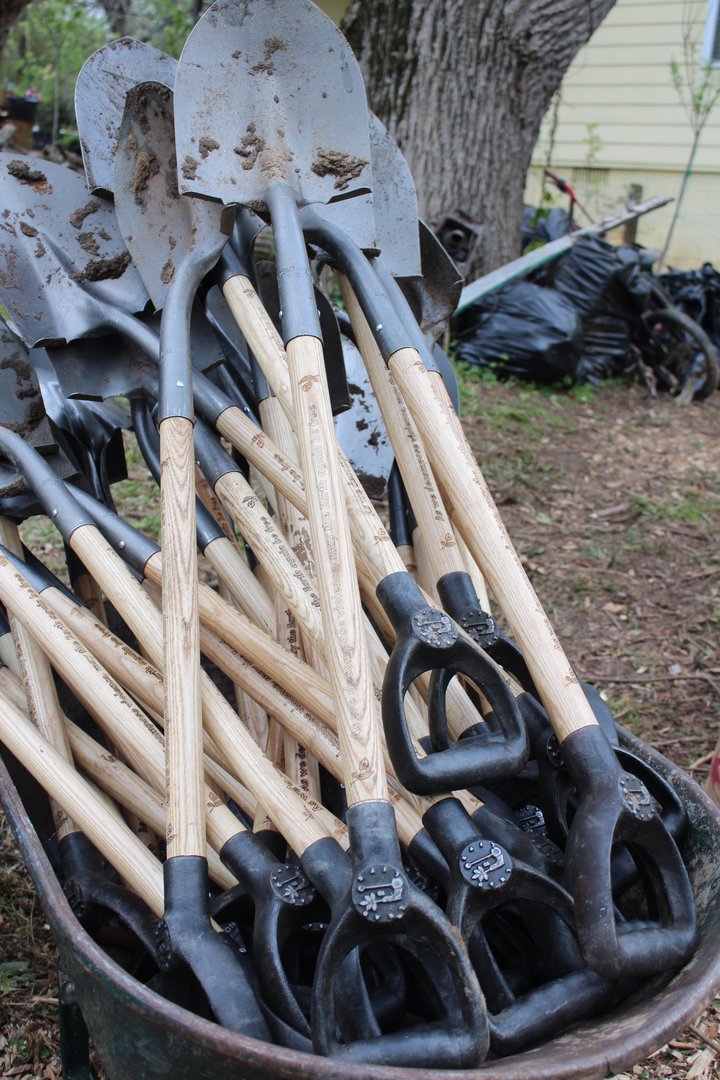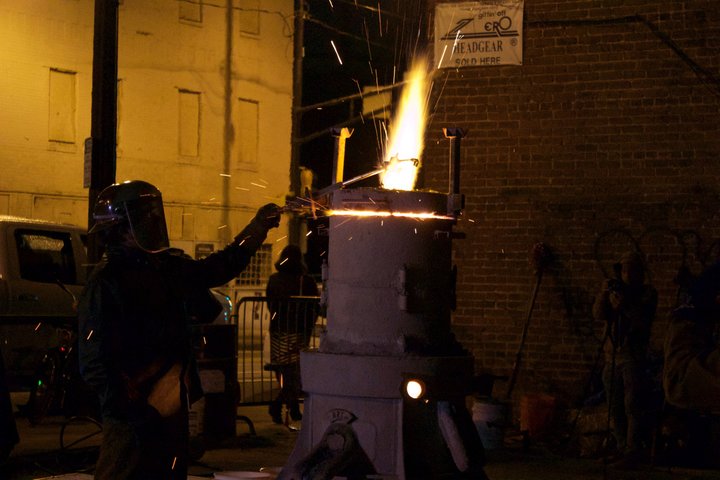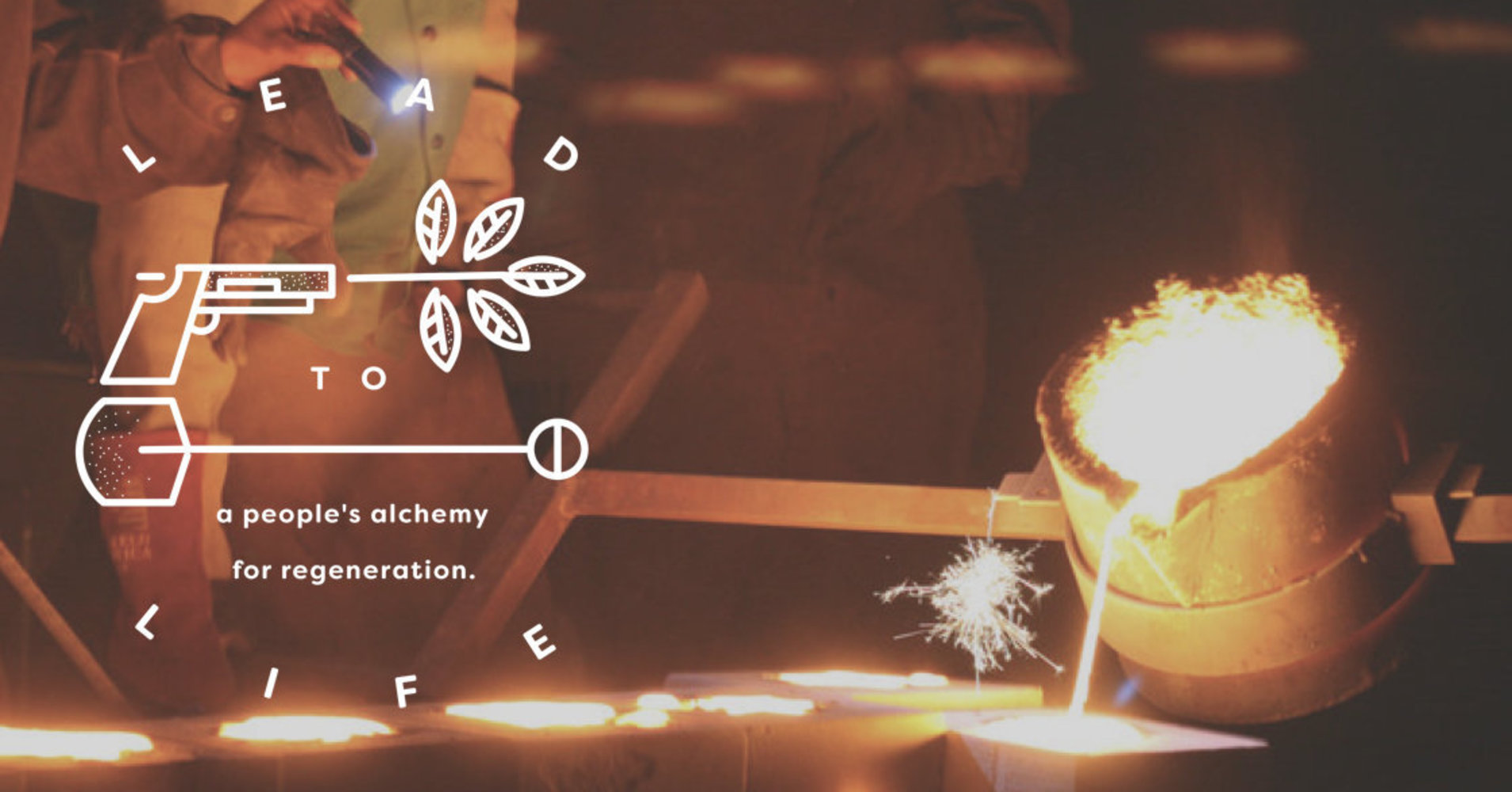[ad_1]
Last week, on April 4, exactly 50 years after her father’s assassination, Rev. Bernice King, the youngest child of civil rights leaders Martin Luther King Jr. and Coretta Scott King, picked up a gun for the first time in her life.
The white-handled revolver wasn’t as big as the rifle used to kill her father in Memphis, Tennessee, in 1968. But in the half-century since his death, handguns were responsible for the vast share of the more than 1.5 million gun deaths in the U.S.
“It’s such a small thing that can be so destructive,” King said. “There’s something wrong when something this small has so much power over us.”
King, along with several families of victims of gun violence and police shootings, was attending an event at the King Center for Nonviolent Social Change in Atlanta, where activists and artists with the group Lead to Life showed how guns can be repurposed for good by melting them down into shovels.
The King Center gathering was the first large public demonstration for Lead to Life, a group launched by California-based activists Kyle Lemle, 28, and Brontë Velez, 24.
“It’s the ultimate transformational act, from something that takes life from the planet to something that gives life on the planet,” said Lemle. “We’re liberating the guns’ histories of violence and giving the metal a new purpose.”
The revolver King carried was meant for such a symbolic change. After walking past the crypt where her parents were laid to rest, she and the other family members came to an open area in which a furnace roared with bright orange fire. A man wearing fire-resistant coveralls and a welder’s mask approached King. She gave him the gun, which he affixed to a rod and placed in the heart of the flame.
Within moments, the weapon had melted away completely, disappearing into a ladle of molten iron. A team of metalworkers then poured the liquid metal into casts of a shovel handle and a peace sign.
The King Center ceremony was part of a week of events for Lemle and Velez dedicated to “healing justice” for communities and individuals affected by gun violence in the Atlanta area. Their inaugural campaign kicked off amid a much larger debate about firearms in the U.S. following the February mass shooting in Parkland, Florida.
In the nearly two months since the massacre at Marjory Stoneman Douglas High School, the tragedy has touched nearly every facet of the national discussion around guns. Much of the conversation has revolved around reforming gun laws and reversing the disturbing trend of mass shootings. There have been rallies and protests. And many of the movement’s most visible leaders are white, though the Stoneman Douglas students have championed inclusivity and diversity.
Lead to Life’s tactics and focus look a bit different.
“There are a constellation of ways people had been impacted by gun violence, all critical,” said Velez. She added that she is particularly interested in “centering families of color, and specifically black folks rooted in Atlanta,” in the discussion ― people whose experiences she feels sometimes get overshadowed.
Velez said she was pleased to have Kai Koerber and Tyah-Amoy Roberts, two Stoneman Douglas students who are black, speak at the King Center ceremony last week.
Lemle and Velez formed Lead to Life after meeting at a “Spiritual Ecology” fellowship program in 2016, when they decided to combine their interests in faith, community organizing, urban forestry, environmental racism, and racial and restorative justice.
The concept of turning guns into shovels refers back to Old Testament scripture that spoke of people who “beat their swords into plowshares,” thereby turning weapons into instruments that benefited human life. Other groups and artists have replicated the symbolic act, including the Mexican artist Pedro Reyes, whom Velez has worked with in the past.

But Lead to Life’s real work begins after their tools harden. Lemle and Velez want people affected by gun violence to be able to use those shovels to turn their pain and loss into new life.
Over the weekend, Lead to Life hosted a series of tree plantings at sites of violence around Atlanta. They also organized a garden action day, in which volunteers used the shovels and other tools to improve a Westside Atlanta resident’s community “food forest.” Many attendees had never done this sort of farm work before, and Lemle and Velez said it provided a way for people to build positive relationships with nature.
One planting, in particular, was deeply personal for Velez. In 2013, she lost a friend, 21-year-old X’avier Arnold, to a fatal shooting during a robbery attempt on a local bike path. The 14-year-old perpetrator and his adult accomplice were each sentenced to serve three life sentences in prison. Yet Velez said the idea of such a young person spending the rest of his life behind bars offered little sense of closure.
On Sunday, Velez gathered at the spot of Arnold’s shooting with his family and loved ones and planted a redbud tree. They scattered Arnold’s ashes, along with soil that Velez had gathered from the site of an early 20th-century lynching along the Chattahoochee River.
“There was a lot of joy, and we had time to be intimate with one another and to reflect on what it meant to plant there, at the site where he was killed,” said Velez.
It takes time and space to grieve and work through trauma, said Velez, but those are luxuries not afforded to many people touched by gun violence.
“With folks who have lost their children, to feel this process as one that is actually seeding something is really profound,” she said.
Velez attended another tree planting on Sunday for Jamarion Robinson, a 26-year-old black man shot 76 times by U.S. marshals in 2016. Lead to Life also returned to the King Center to plant a cherry tree in Coretta Scott King’s Peace Garden.

The guns involved in Lead to Life’s recent events had been donated to the San Francisco Police Department through a buyback program organized by United Playaz, a violence prevention and youth development organization. Minnesota-based metal artist James Brenner helped transport the weapons to Atlanta, along with his furnace to assist in melting and recasting them.
Although Lead to Life had wanted to work with the Atlanta Police Department, Georgia state law forbids law enforcement from destroying guns that are seized from criminals or voluntarily turned in through buybacks. A number of other states have passed similar laws in recent years, and as a result, many law enforcement agencies are forced to sell those firearms back onto the street.
“We couldn’t actually get weapons from [the Atlanta Police Department] because of politics,” said Lemle.
In the future, Lead to Life plans to work directly with people who want to turn over their guns. The organization has seen increased interest in the wake of the Parkland shooting, said Lemle.
“We’ve already had folks reaching out to us inspired by the work, wanting to get rid of their guns for good,” he said. Lemle added that gun owners must first disable their firearms by making cuts to weapons before shipping them to Lead to Life or a partner organization. But he advised people to reach out for instructions before doing anything.

With an estimated 300 million firearms in civilian hands in America, Lemle and Velez understand this sort of project alone won’t make a meaningful dent in gun violence, a nationwide epidemic that erupts each year in around 11,000 homicides, 22,000 suicides and tens of thousands of other nonfatal shootings.
“It’s a drop in the ocean to turn a gun into a shovel,” Velez said. “We’re more about what we as a people need to do to be well and together with one another to heal, because we can’t wait for the state to do that for us.”
But if Lead to Life’s first round of events is any indication, Lemle and Velez believe they can at least shift participants’ consciousness in ways that may help disrupt the cycles of violence. By offering time and space to process trauma, as well as a place to foster healthy relationships with nature and each other, Lemle and Velez hope to turn people away from apathy and eventually toward political change.
“It’s really a spiritual crisis that is causing us to kill each other and render people and planet as disposable,” Lemle said. “Nothing is going to change on Capitol Hill until there is a true social movement demanding peace, and where I think social movements truly begin is from that spiritual place within ourselves.”
[ad_2]
Source link

